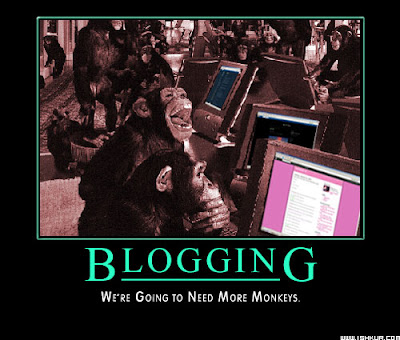When discussing American intervention inevitably someone will cry Afghanistan as a warning. In the 1980s the United States supplied arms to various militant groups. The goal was to resist the Soviet invasion in the hopes that it would weaken a US rival at a relatively minimal cost. Some of these groups then became the ruling Taliban that won their post-Soviet civil war. The ruling Taliban allowed Al Qaeda to train and then launch the 9/11 attacks. Thus creating “Afghanistan” as a single, silver bullet to any American intervention.[1] In fact, “blowback” is such a lazy catch phrase that even in commenting on the Israel Hamas war Connor Boyack, a supposedly serious libertarian, conflated cycle of violence and blowback into cycle of blowback. (He also added some antisemitism as well.) But this argument fails as a simplistic retelling of history, offers a presentist argument that discounts the contemporary threat of the Soviet Union, and continues to offer a reactive and weak vision of foreign policy.
History doesn’t move in a straight line. It’s
true that some militant groups received arms. At the same time though that
action doesn’t lead in a straight line to the 9/11. The various militant groups
fought against each other almost as much as they fought the Soviet Union. In
fact, the fragmentary leadership and society led to a civil war in Afghanistan
for much of the 90s. Only half a decade after that civil war Al Qaeda
launched the 9/11 attacks. There were all sorts of moments that could have
changed that outcome, and the US wasn’t closely involved in them for a decade.
The Soviets could have continued their occupation. Another
power like the Northern alliance and the Lion of
Panjshir, could have won the civil war. Ironically enough, after the
withdraw of Soviet forces that lion complained the US wasn’t more involved.
From the linked interview he said: “[The US] forgot Afghanistan and they left
Afghanistan alone.” This reminds me of a poor
book where the author argued the US was imperialistic for “meddling” in
foreign countries, while he also blamed the US for “losing” China to the
Communists. In other words, he blamed the US for not meddling. But when your
isolationist agenda comes first, and you rely on a simplistic understanding of
history, intellectual rigor and honesty take a back seat.
Returning to other historical paths not taken, Bill Clinton
could have seized Osama Bin Laden when he had the chances. (BillClinton actually had nine chances according to the 9/11 commission.) Any of
these variables alone, and definitely all of them together cut the thread of
American aid to the mujahadeen leading to 9/11 implied in the blowback
arguments. There were so many variables that meandered throughout the decade
plus interval between the two that the blowback argument becomes simplistically
ahistorical.
More importantly, this is a presentist argument. Presentism
is normally a fallacy from those that complain individuals in the past are
racist, sexist, and otherwise fail to conform to current standards. In this
case presentism takes the terror attack from a decade later to ignore the
threats at the time that made America arm the mujahadeen. It would be much like
looking at Soviet strength early in the Cold War and complaining that it was
blowback for America’s defeat of Hitler.[2]
That thinking ignores the threat the Nazis posed and the need to intervene
against that threat.
In that Cold War America faced an evil empire that repressed
its own citizens, ruthlessly crushed dissidents abroad, aggressively expanded along
its borders and threatened nuclear war. Arming Afghani fighters was a
relatively low-cost way to sap the strength of an existential threat. Those
using their only bullet ignore the historical context of that threat. They
might argue that the US had no moral right or national interest to resist the
Soviet Union, but I’m assuming that my readers don’t lack moral confidence in
America or show downright hatred for their country that many show today.
Because ignoring the Soviet Union of the 1980s for fear of the Taliban assisted
terror attack of 9/11, is like saying America shouldn’t fight Hitler because
the Soviet Union will be stronger.
The US should balance the consequences with their goals but
can’t be paralyzed by fear which leads to my final point that our foreign
policy can’t be paralyzed by fear of what could happen. Its true that
actions have consequences, but so does inaction.
The best example of blowback from inaction that ends up
being worse than any blowback from action is in Syria. Back in 2011 the typical
crowd wanted to avoid any military action to remove the Syrian dictator and
protect civilians. They did so using a false dichotomy between a massive
invasion and nothing, when America could have achieved good results with
limited invested and danger through a no fly zone. But afraid of a small
potential of war through a no-fly zone or missile strikes, we did nothing.
The result was that America looked weak because our leaders declared red lines that they didn’t enforce, and made bellicose statements that the dictator’s days were “numbered” that became irrelevant. Almost 300,000 civilians have died, 12 million internally displaced, and 5 million people became refugees. Russia made Syria their proxy and tested their combat tactics that were used in Crimea and Ukraine a short time later. The terrorist group ISIS went from jayvee to pro and stormed across much of the region. European nations still grapple with that refugee crisis, including Sweden that had to mobilize the army to fight gangs of immigrant youth. In the US we had rabid debates about what to do with all of those migrants. (Though I think we should have loved them enough to make sure their homes weren’t destroyed in the first place.)
Looking at all that, do the isolationist libertarians that use this silver bullet consider all the consequences of inaction? Nope, they scream blowback about the current shiny thing in the news. Ironically enough, it was blowback that started the war in Ukraine, and probably Israel. Putin started marshaling his forces for invasion mere weeks after the botched Afghanistan withdraw.
Clearly the United States should carefully consider its
actions which include blowback to military intervention and nonintervention.
But using the aid to Afghanistan in the 1980s as a direct cause of 9/11 is over
simplistic reasoning in support of consistent, knee jerk isolationism. (Or as I
discovered researching my next book, their beliefs are called contingent
pacifism because they recognize a theoretical right to just war in
scripture but don’t find any examples in the world that meet those conditions.)
The Afghani silver bullet ignores the historical context of the decisions in
the 1980s to argue for isolationism today. Most importantly, that silver bullet
shows an inherently weak foreign policy by ignoring the expensive cost of inaction for often
vague and exaggerated costs of action.
[1]
This is more rhetorical flourish than clinically accurate. Isolationists
libertarians sometimes refer to the CIA coups against Guatemalan and Iranian
governments in the 1950s.
[2] Personally,
that’s why I preferred Winston Churchill’s Mediterranean
strategy where Western allies invaded Eastern Europe from Italy. Despite
its higher difficulty level that strategy would have spared millions from Soviet
domination.












